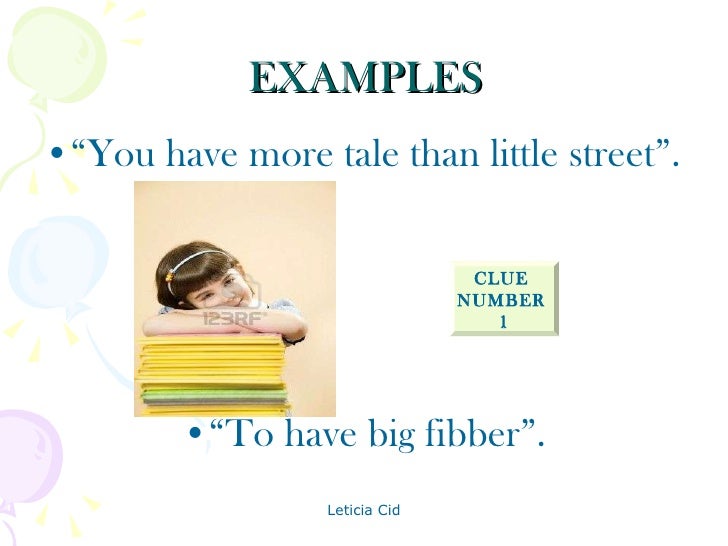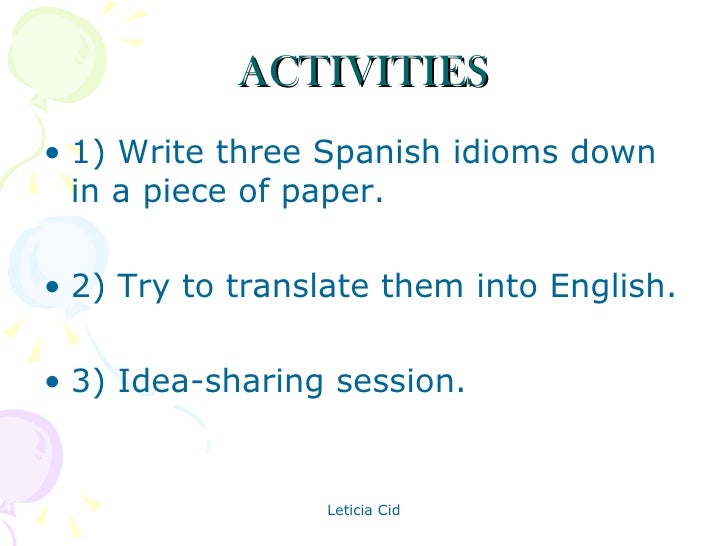

De verdad, no te lo digo con la boca pequeña. Dime si te puedo echar una mano, y si ves que te va a salir un ojo de la cara, pues borrón y cuenta nueva.

Pareces estar hecho polvo, pero seguro que no era pan comido. You pick up the previous thread and say to your colleague: Continuing the Conversation with Spanish Idioms Meaning: Life can be difficult but not deadly. Literally: “God squeezes but does not hang.” Meaning: Don’t mention a sensitive or controversial subject. Literally: “Do not name the rope in the house of the hanged man.” No nombres la soga en la casa del ahorcado. Meaning: To be in trouble, to be very stressed.īy the way, to continue with the hanged man theme, there are other very common expressions: 8. Literally: “To be with the rope to the neck.” If the honored person did not continue to strive, then he “rested on his laurels.” 7. Meaning: This one has equivalent in English! As you may know, crowns made of laurel wreaths were given to distinguished citizens in ancient Greece and Rome. The origin of this idiom is also from hunting, as when an animal gets its leg caught in a trap. Meaning: To mess up, make a mistake, or say the wrong thing. Literally: “To put an animal’s leg/foot in it.” This is a reference to an old hunting technique. Meaning: To do two things at a time, without analyzing the consequences. Literally: “To kill two birds with one shot.” The origin of this expression is set back to the 17th century when the lottery games were first organized by the estate, and the people that won the first games renovated their houses, throwing their old furniture through the window. Meaning: To spend a lot of money, or invest much time. Literally: “ I threw the house through the window.” Meaning: Something that is a very good source of money or business. Literally: “The goose that laid the golden eggs.” Let’s start with the ones in the conversation above: 15 Common Spanish Idioms To Use in Conversations 1. This article, though, will be devoted to idioms that can be useful in a basic conversation. In Don Quixote you can read about 500 sayings, mostly said by Sancho Panza, Don Quixote’s squire. Literally: “To have more face than back.” Meaning: “to be cheeky” Refranes:įor example: Quien a buen árbol se arrima, buena sombra le cobija “Whoever leans close to a good tree is blanketed by good shade.” However, we need to make the difference between expressions that are frequently confused: The 2 Types of Spanish Idioms ModismosĬommon expressions whose literal meaning is different from the figurative.įor example: Tener más cara que espalda. There are universal idioms, general idioms, and regional ones.

Sometimes, people speak with so many idiomatic expressions that a foreigner cannot understand a very simple conversation. Their origin is normally historic and they are very common both in formal and informal language. Idioms are figurative expressions in a language that mean a completely different thing than the literal words they contain. But I completely screwed up, did not pay much attention and now I am in trouble.” “I am in a very bad mood, because I thought this business was going to be really successful, I spent a lot of money, taking advantage of another business. However, I inserted my leg until the bottom, I rested on my laurels and now my neck has a rope on it.” As I thought that this would be the golden eggs hen, I threw the house through the window in this business because I wanted to kill two birds in one shot.

Pero metí la pata hasta el fondo, me dormí en los laureles, y ahora estoy con la soga al cuello.ĭid you hear that? Literally, your colleague said: Como creía que esto iba a ser la gallina de los huevos de oro, tiré la casa por la ventana en este negocio por querer matar dos pájaros de un tiro. You know that a colleague has started a new business and you ask him how it’s going. Imagine that you have been invited to a lunch work meeting in Madrid.
#Sounds like a plan spanish idiom how to
How to Use Spanish Idioms in a Conversation


 0 kommentar(er)
0 kommentar(er)
